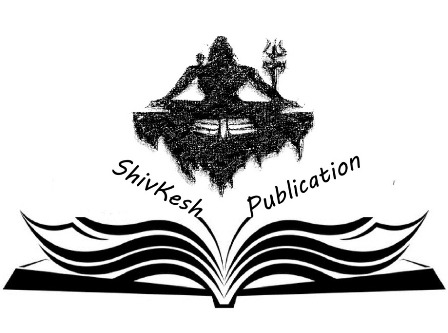Medical treatment options available for mucormycosis
Review Article
Abstract
Introduction: Mucormycosis is known as a rapidly progressive and invasive lethal fungal infection. The predisposing factors known to potentiate this fungal infection are diabetes mellitus, primary or secondary immunodeficiency, etc. The clinical presentation of these cases may vary from involvement of localized skin infection to disseminated systemic infection.
Methods: In this article, an attempt was made to review the therapeutic guidelines released by European Committee for Antimicrobial Susceptibility Testing (EUCAST) and Clinical and Laboratory Standards Institute (CLSI).
Results: In addition to this, efforts were made to briefly review the evidence available on various formulations of accepted treatment methods including Amphotericin B (AmB), Posaconazole (PSZ), and Isavuconazole (ISZ), and other newer anti-fungal agents such as Voriconazole (VCZ), Echinocandins, etc.
Conclusions: An attempt was also made to discuss the various drugs that can be used as a single agent or combinations considered to be synergistically active and beneficial for the treatment/ prophylaxis of Mucormycosis.
Downloads
References
Brunet, K., & Rammaert, B. (2020). Mucormycosis treatment: Recommendations, latest advances, and perspectives. Journal de mycologie medicale, 30(3), 101007.
Chitasombat, M. N., & Kontoyiannis, D. P. (2016). Treatment of mucormycosis in transplant patients: role of surgery and of old and new antifungal agents. Current opinion in infectious diseases, 29(4), 340–345.
Cornely, O. A., Alastruey-Izquierdo, A., Arenz, D., Chen, S., Dannaoui, E., Hochhegger, B., Hoenigl, M., Jensen, H. E., Lagrou, K., Lewis, R. E., Mellinghoff, S. C., Mer, M., Pana, Z. D., Seidel, D., Sheppard, D. C., Wahba, R., Akova, M., Alanio, A., Al-Hatmi, A., Arikan-Akdagli, S., … Mucormycosis ECMM MSG Global Guideline Writing Group (2019). Global guideline for the diagnosis and management of mucormycosis: an initiative of the European Confederation of Medical Mycology in cooperation with the Mycoses Study Group Education and Research Consortium. The Lancet. Infectious diseases, 19(12), e405–e421.
Ellsworth, M., & Ostrosky-Zeichner, L. (2020). Isavuconazole: Mechanism of Action, Clinical Efficacy, and Resistance. Journal of fungi (Basel, Switzerland), 6(4), 324.
Ferguson, B. J., Mitchell, T. G., Moon, R., Camporesi, E. M., & Farmer, J. (1988). Adjunctive hyperbaric oxygen for treatment of rhinocerebral mucormycosis. Reviews of infectious diseases, 10(3), 551–559.
Gebremariam, T., Alkhazraji, S., Baldin, C., Kovanda, L., Wiederhold, N. P., & Ibrahim, A. S. (2017). Prophylaxis with Isavuconazole or Posaconazole Protects Immunosuppressed Mice from Pulmonary Mucormycosis. Antimicrobial agents and chemotherapy, 61(5), e02589-16.
Gupta, N., Singh, G., Xess, I., & Soneja, M. (2019). Managing mucormycosis in a resource-limited setting: challenges and possible solutions. Tropical doctor, 49(2), 153–155.
Hamill R. J. (2013). Amphotericin B formulations: a comparative review of efficacy and toxicity. Drugs, 73(9), 919–934.
Honavar S. G. (2021). Code Mucor: Guidelines for the Diagnosis, Staging and Management of Rhino-Orbito-Cerebral Mucormycosis in the Setting of COVID-19. Indian journal of ophthalmology, 69(6), 1361–1365.
Ibrahim, A. S., Spellberg, B., & Edwards, J., Jr (2008). Iron acquisition: a novel perspective on mucormycosis pathogenesis and treatment. Current opinion in infectious diseases, 21(6), 620–625.
Moore, J. N., Healy, J. R., & Kraft, W. K. (2015). Pharmacologic and clinical evaluation of posaconazole. Expert review of clinical pharmacology, 8(3), 321–334.
Schwarz, P., Bidaud, AL. & Dannaoui, E. (2020). In vitro synergy of isavuconazole in combination with colistin against. Candida auris. Sci Rep, 10(21448),1-8
Sharma, S., Grover, M., Bhargava, S., Samdani, S., & Kataria, T. (2021). Post coronavirus disease mucormycosis: A deadly addition to the pandemic spectrum. The Journal of Laryngology & Otology, 135(5), 442-447.
Sipsas, N. V., Gamaletsou, M. N., Anastasopoulou, A., & Kontoyiannis, D. P. (2018). Therapy of Mucormycosis. Journal of fungi (Basel, Switzerland), 4(3), 90.
Skiada, A., Pavleas, I., & Drogari-Apiranthitou, M. (2020). Epidemiology and Diagnosis of Mucormycosis: An Update. Journal of fungi (Basel, Switzerland), 6(4), 265.
Spellberg, B., & Ibrahim, A. S. (2010). Recent advances in the treatment of mucormycosis. Current infectious disease reports, 12(6), 423–429.
Spellberg, B., Edwards, J., Jr, & Ibrahim, A. (2005). Novel perspectives on mucormycosis: pathophysiology, presentation, and management. Clinical microbiology reviews, 18(3), 556–569.
Spellberg, B., Ibrahim, A., Roilides, E., Lewis, R. E., Lortholary, O., Petrikkos, G., Kontoyiannis, D. P., & Walsh, T. J. (2012). Combination therapy for mucormycosis: why, what, and how?. Clinical infectious diseases : an official publication of the Infectious Diseases Society of America, 54 Suppl 1(Suppl 1), S73–S78.
Spellberg, B., Walsh, T. J., Kontoyiannis, D. P., Edwards, J., Jr, & Ibrahim, A. S. (2009). Recent advances in the management of mucormycosis: from bench to bedside. Clinical infectious diseases : an official publication of the Infectious Diseases Society of America, 48(12), 1743–1751.
Sun, H. Y., & Singh, N. (2011). Mucormycosis: its contemporary face and management strategies. The Lancet. Infectious diseases, 11(4), 301–311.
Tissot, F., Agrawal, S., Pagano, L., Petrikkos, G., Groll, A. H., Skiada, A., Lass-Flörl, C., Calandra, T., Viscoli, C., & Herbrecht, R. (2017). ECIL-6 guidelines for the treatment of invasive candidiasis, aspergillosis and mucormycosis in leukemia and hematopoietic stem cell transplant patients. Haematologica, 102(3), 433–444.

Copyright (c) 2021 Shiva Murthy Nanjundappa

This work is licensed under a Creative Commons Attribution-NonCommercial-NoDerivatives 4.0 International License.










